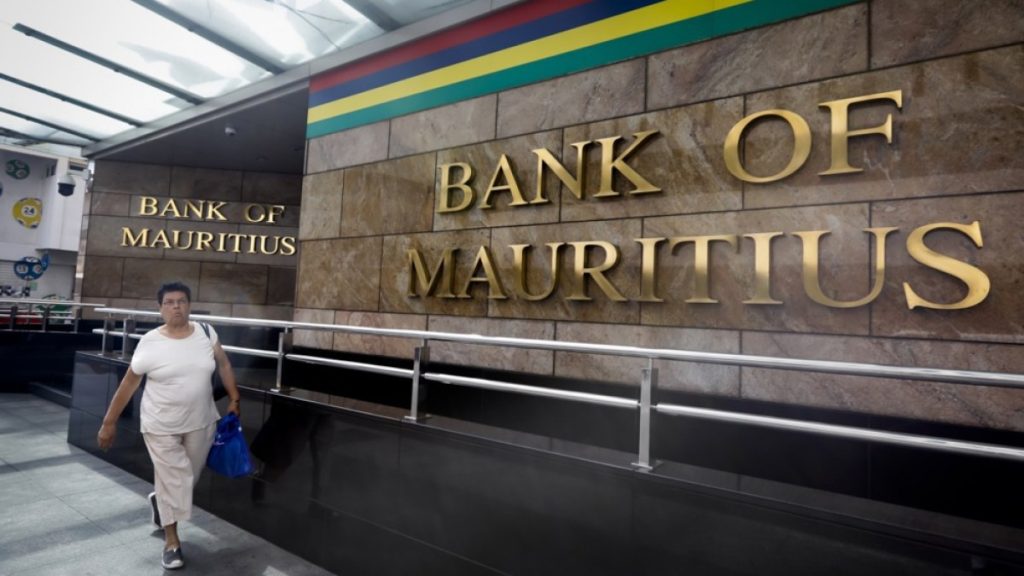The idyllic island nation of Mauritius, renowned for its political stability, economic prosperity, and breathtaking landscapes, finds itself grappling with a burgeoning scandal involving allegations of financial impropriety at the highest levels of government. At the center of this unfolding drama is Harvesh Kumar Seegolam, the former governor of the Bank of Mauritius, who faces an imminent arrest warrant upon his return to the country. The police anti-money-laundering unit has initiated the action, marking a significant move by the newly elected government of Prime Minister Navin Ramgoolam to address potential corruption within the previous administration. While details of the specific charges against Seegolam remain scarce, the context surrounding the investigation paints a picture of alleged financial mismanagement and manipulation of economic data.
Prime Minister Ramgoolam, having returned to power after a landslide victory in the November parliamentary elections, has wasted no time in launching a probe into the financial dealings of the previous government led by Pravind Jugnauth. Ramgoolam’s investigation has unearthed alarming allegations, including the falsification of key economic indicators such as GDP, budget deficit, and public debt figures. This alleged manipulation of crucial data raises concerns about the transparency and integrity of the previous government’s financial practices. Furthermore, Ramgoolam’s report accuses the central bank, under Seegolam’s leadership, of engaging in questionable monetary policies, specifically the printing of money to fund the Mauritius Investment Corporation (MIC).
The MIC, established in 2020 as a lifeline for businesses struggling amidst the COVID-19 pandemic, was intended to be funded by the central bank’s foreign exchange reserves. However, Ramgoolam’s report alleges that the bank resorted to printing money to finance the MIC, a move that potentially destabilized the monetary system, particularly given the existing excess liquidity within the banking sector. This injection of newly printed money, without a corresponding increase in economic output, could have inflationary consequences and further erode public trust in the country’s financial institutions. The allegations against Seegolam and the central bank raise serious questions about the independence of the institution and its adherence to sound monetary policy.
The investigation into Seegolam and the alleged financial irregularities represents a critical test for Mauritius’s commitment to transparency and accountability. The island nation has long prided itself on its stable democracy and thriving economy, attracting substantial foreign investment and tourism. However, the allegations of corruption within the previous government and the central bank threaten to tarnish this reputation. The outcome of the investigation will be closely watched by international observers and investors, as it could signal either a reaffirmation of Mauritius’s commitment to good governance or a slide towards a less transparent and accountable system. The unfolding events have the potential to significantly impact the country’s future economic trajectory and its standing within the international community.
The arrest warrant for Seegolam is just the first step in a potentially complex and lengthy legal process. The former governor’s defense strategy and the evidence presented during the trial will play a crucial role in determining the final outcome. The investigation will undoubtedly delve into the intricacies of the MIC’s funding mechanisms and the rationale behind the central bank’s decisions. The scrutiny faced by Seegolam highlights the importance of strong regulatory oversight and ethical leadership within financial institutions. The case serves as a reminder that even in seemingly stable democracies, vigilance is necessary to safeguard against corruption and ensure the responsible management of public funds. The unfolding events in Mauritius underscore the critical role of independent institutions and a free press in holding those in power accountable and maintaining public trust.
The unfolding situation in Mauritius underscores the fragility of even well-established democracies. While the country has long been considered a beacon of stability in the region, the allegations of corruption and financial mismanagement demonstrate the potential for erosion of trust in institutions and the rule of law. The investigation into Seegolam and the broader examination of the previous government’s financial dealings represent a pivotal moment for Mauritius. The country must navigate this challenging period with transparency and accountability to reaffirm its commitment to democratic principles and reassure both its citizens and the international community. The outcome of this process will undoubtedly shape the future of Mauritius and its ability to maintain its reputation as a stable and prosperous nation. The international community will be watching closely to see how Mauritius addresses these challenges and strengthens its institutions to prevent future occurrences of such alleged misconduct.

